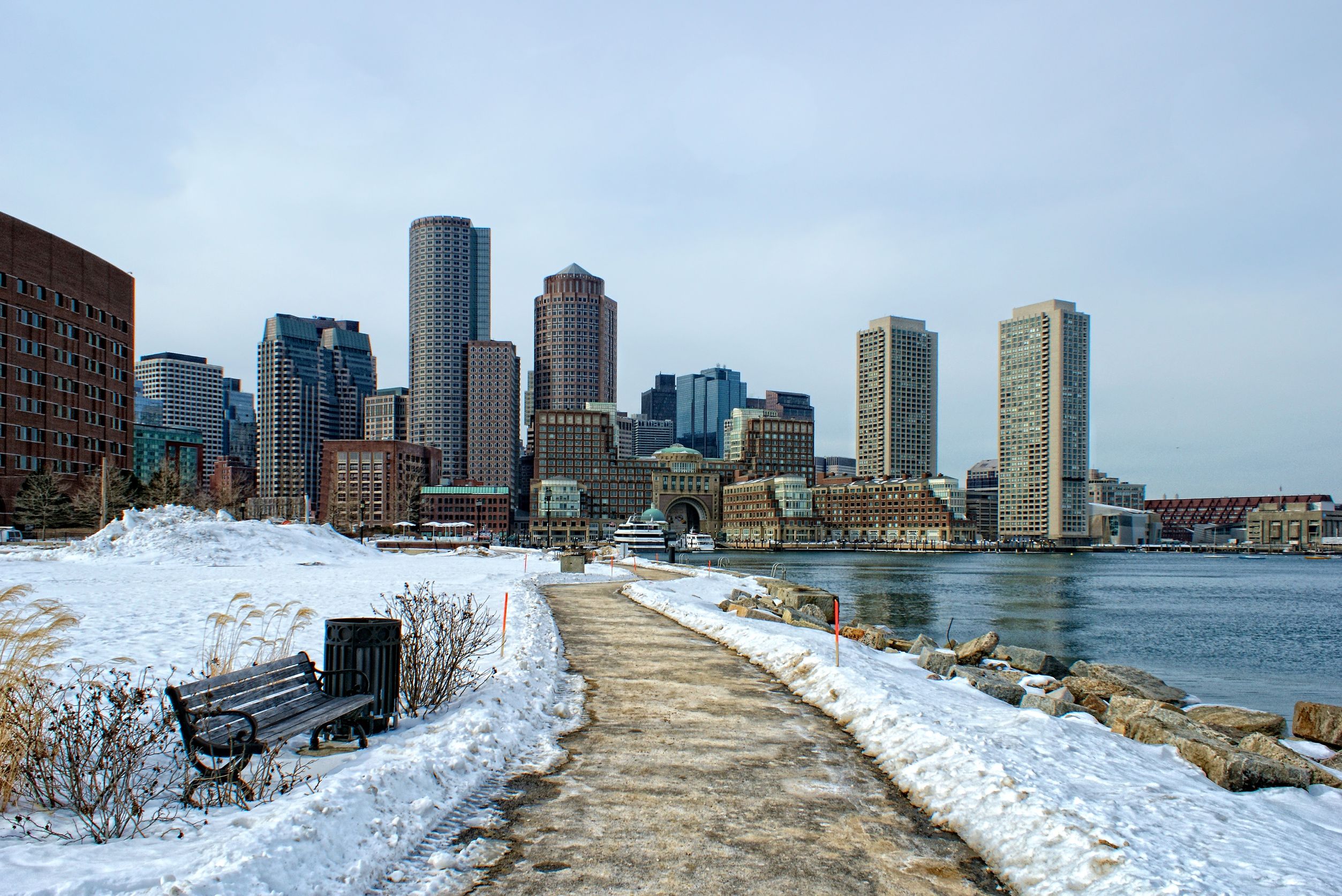The North Atlantic moderates Boston’s coastal location, which makes the city quite prone to Nor’easter weather systems. As you may know, these systems can bring heavy snow in the winter. Add the fact that the daily mean temperature is a mere 29 degrees Fahrenheit in January, you are probably already seeing yourself in a state of panic when you open your energy bill. Well, although the city is known for its cold winters there are things you can do to help keep your energy bill down, and reduce your carbon footprint while you are at it.
Break Out the Blankets
If you have the heat cranked up so you can sit there watching television in a t-shirt and shorts, you are essentially just throwing money away. Turn the thermostat down a bit, put on a soft, warm fleece, and curl up under a blanket. You will be just as warm and your bill will decrease significantly. Always turn the temperature down even a few more degrees when you go to sleep and toss another blanket on the bed. Energy providers state that turning the thermostat down 10 degrees for the hours you are sleeping can reduce your bill between 10 and 20 percent.
Turn Heat Down When You Are Away
The last thing you should do before you head out the door is turn the heat down. Why have it running nonstop while you are not there? It will heat up fairly quickly when you arrive home later. If you have pets, leave a few throw blankets out for them to get cozy under, or buy them sweaters.
Turn Off and Unplug
How often to you leave lights on or small kitchen appliances plugged in? Anything you are not using should be off and unplugged. If you come home from work after it is dark out, get a solar light for outside your front door or plug a small nightlight in. Leaving on an exterior light just so it is on for you to walk in the door is wasting a ton of energy.
Weatherproof
If you are moving to Boston from a warmer climate, you will not understand how important weatherproofing around windows and doors is until you literally feel the bitter air blowing through on a windy winter day. Seal around all windows and doors. Any large windows should be protected with plastic. You can buy window kits in the store that include plastic and two-sided tape. When done properly it will not restrict your view either. You can purchase long door wind guards to stop air from sneaking under your exterior doors, too. You can find them at nearly any home improvement store or you can hit a craft show, and often find them created in a variety of animals and other fun designs.
Replace Filters
Do not wait until your filter is in really bad shape to replace it. Inspect the filter late in the fall and clean or replace, if there is a significant amount of dust. Have you ever noticed how you get better fuel economy after an oil change? Well, replacing the filter of your furnace is the same concept.
Humidifier
Dry air makes space feel much colder. A humidifier will add a bit of moisture to the air to make it feel warmer. If you have a wood stove, you can put a pot of water on top, and it will evaporate throughout the day. You can also place a bowl of water in front of wall heat vents to help a bit, too.
Seal Unused Rooms
If there are rooms in your home not being used, close the vents in them and keep the doors closed. This will direct the air from the furnace to the rooms you are using.
Additional Helpful Tips
- Never turn off the heat, or your pipes can freeze and burst.
- Keep your water heater under 125 degrees.
- Consider insulating the pipes and installing a water heater blanket.
- Get your furnace inspected and tuned annually.
- Close the damper of your fireplace when not in use.
- Use LED lights in the home.
- Don’t overload electrical circuits.








